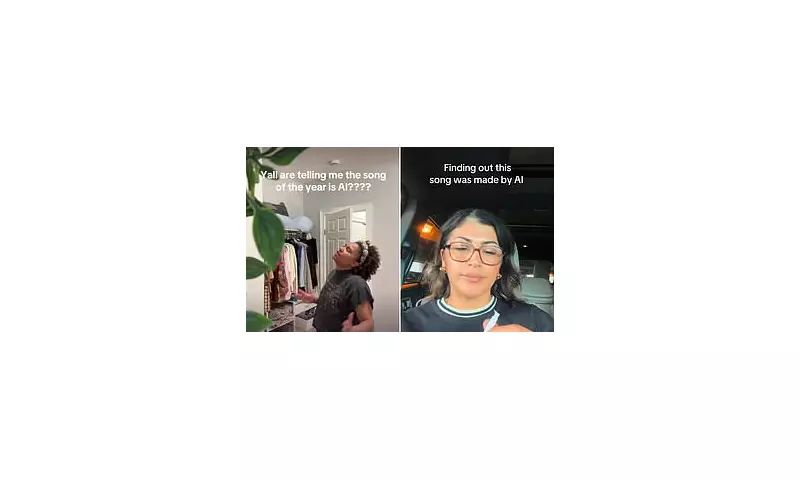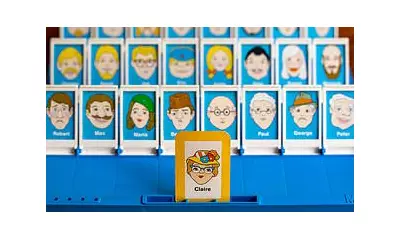
TikTok users across the UK are reeling after discovering that what many hailed as 'the song of the year' may have been created using artificial intelligence. The track 'I Run' by mysterious artist HAVEN achieved remarkable success before abruptly vanishing from major streaming platforms, sparking intense debate about AI's role in music creation.
The Meteoric Rise and Sudden Disappearance
The song 'I Run' experienced an extraordinary journey through the charts, reaching number 11 on Spotify in the United States and an impressive number 25 on the global charts. Released on October 28th, the track accumulated over 2.8 million listens on YouTube in less than a month, with social media users describing it as unforgettable and soul-piercing.
However, the track's rapid ascent came to an abrupt halt when it suddenly disappeared from both Spotify and Apple Music without explanation. This removal coincided with growing suspicions about the song's origins and Spotify's recent hardline stance against AI-generated content that impersonates human artists.
The AI Controversy Unfolds
Several factors contributed to the growing belief that 'I Run' might be an AI creation. The track represented the first and only release from an artist using the alias HAVEN, who maintained complete anonymity. More notably, no vocalist was credited on either Spotify or Apple Music, raising immediate red flags within the music community.
The mystery deepened when listeners noticed the uncanny vocal resemblance to British singer Jorja Smith. So striking was the similarity that many social media accounts initially circulated claims that this was an unreleased Jorja Smith track. The speculation became so widespread that Smith herself felt compelled to address it, commenting directly on TikTok: 'It's not meeeee.'
Spotify's Stance on AI Music
The timing of the song's removal appears significant given Spotify's recent policy announcements. The streaming giant confirmed it would remove music that impersonates another artist's voice without permission, whether through AI voice cloning or other methods. This policy extends to tracks that don't explicitly name the impersonated artist but feature vocals that are 'clearly recognisable' as belonging to someone else.
Spotify's crackdown has already seen substantial results, with the platform removing 75 million AI-generated tracks in the 12 months leading up to September. The company has also implemented new tools designed to make it more difficult to upload AI-generated spam content.
The Artist Responds
London-based producer Harrison Walker eventually came forward as the musician behind HAVEN, though his explanation raised more questions than answers. According to music publication Hits, Walker claims the vocals are actually his own voice that underwent 'layers of processing and filtering' until it became unrecognisable.
This process bears striking similarity to how AI voice cloning typically works, where musicians feed lyrics and melodies into AI systems that transform their voice to sound like someone else. In 2023, musician Grimes famously distributed similar software that allowed anyone to clone her voice for their own music.
HAVEN attempted damage control through a TikTok video featuring the back of an unidentified man's head, who stated: 'It's HAVEN, I just wanted to jump on here to show you that I am a real person.' He acknowledged the 'take downs' and promised to 'work really hard to get it sorted,' but provided no clarification about the AI allegations.
Fan Reactions: Betrayal Versus Acceptance
The revelation has split the song's fanbase, with many expressing feelings of betrayal and disappointment. One devastated TikTok user commented: 'I felt so deceived when I found out this song has AI vocals… It's so viral, it's so disheartening to see.'
Another took a more philosophical approach, writing: 'AI shouldn't be allowed to replace human creativity. Ya know… the one thing that makes us HUMAN.' The sentiment echoed broader concerns about artificial intelligence encroaching on traditionally human domains.
However, not all listeners shared these concerns. Some embraced the technological evolution, with one commenter noting: 'Why is AI an issue like I don't understand like as much as I hate it to realistically AI is going to be the future.' Another simply stated: 'Who even cares if it is AI. The song bangs,' highlighting that for some listeners, musical enjoyment trumps concerns about creation methods.
Broader Implications for Music Industry
This incident represents another chapter in the ongoing struggle between streaming platforms and AI-generated content. Spotify previously removed a song called 'My Sleeve' that used AI to impersonate Drake's vocals, following criticism from Universal Music Group about copyright infringement.
The case of 'I Run' demonstrates the increasing sophistication of AI music tools and the challenges platforms face in regulating content that blurs the lines between human creativity and artificial generation. As AI technology continues to advance, the music industry faces complex questions about authenticity, copyright, and the very definition of artistic creation.
Harrison Walker, Isekai Records, Broke Records, and Spotify have all been contacted for comment as the music community awaits further clarification about what exactly happened with the viral track that captured—and then broke—so many hearts.




